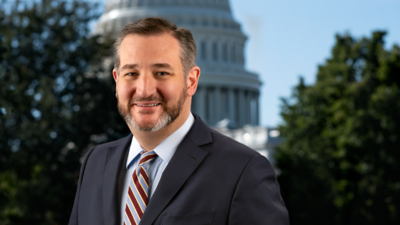Chicago Mayor Lori Lightfoot wants to raise taxes 10 percent to fund more city government spending. | City of Chicago
Chicago Mayor Lori Lightfoot wants to raise taxes 10 percent to fund more city government spending. | City of Chicago
The City of Chicago will spend 60 percent more in 2019 than it did thirty years ago, in 1989, even though its population fell 11 percent over the same span.
That's according to an analysis of city Annual Appropriation Ordinance documents by Chicago City Wire. The city's annual appropriation represents what it is approved to spend by the Mayor and City Council, though using accounting gimmicks and borrowing it typically manages to spend more hundreds of millions more.
The city said it has planned to spend $3,529 for each of its 2,479,360 residents this year, versus $2,212 for 2,783,911 residents in 1989. That's an increase of 60 percent, adjusted for inflation.
City finance officials projected Chicago residents would pay $8.75 billion in taxes to fund city government this year-- 17 percent ($1.5 billion) in property taxes and another $7.23 billion in various city fees, fines and surcharges.
The city's share of Chicago property taxes are not used to pay for any services but, rather, exclusively to pay interest on the city's massive debt, which now totals some $57 billion-- $26.9 billion in bonds and $30 billion in "pension" debt, according to the Illinois State Comptroller.
All city operations, including budget officials estimated, would cost a total of $6.03 billion this year.
Interest payments and those to prop up the city's four insolvent, so-called employee retirement funds, will total $3.5 billion in 2019, up 340 percent from $808 million in 1989. Today, these payments represent 40 cents of every tax dollar spent by the City of Chicago, up from 27 percent in 1989.
The city's pension funds are collectively 27 percent funded, according to the Illinois Department of Insurance, holding $9.9 billion in assets and $37.5 billion in liabilities.
When Detroit filed for bankruptcy, pensions similarly made up 40 percent of its annual budget.
10 percent more spending, taxes?
Chicago Mayor Lori Lightfoot announced Thursday that she planned to increase spending further in 2020, claiming her budget plans would require another $838 million in tax hikes on Chicagoans, or approximately ten percent of what the city taxed in 2019.
In a budget speech, she touted an exit tax for Chicago home sellers and a new Chicago casino as strategies to fund her proposed new spending.
She also said she hoped to keep business in the city, despite enacting anti-business measures like "fair work week" legislation, limiting Chicago employers' ability to flexibly schedule staff, and a $15 minimum wage for Chicago.
Chicago over 30 years: population down, Spending up
Chicago's population has fallen since 1989 steadily. But its government spending has risen even moreso.
| 1989 | 1999 | 2009 | 2019 | 1989-2019 CHG | ||
| Mayor | Sawyer | Daley | Daley | Emanuel | Total | % |
| POPULATION | 2,783,911 | 2,896,016 | 2,695,598 | 2,479,360 | -304,551 | -10.9% |
| CITY OF CHICAGO REVENUE | ||||||
| Gross Prop Tax Levy | $621,516,000 | $659,038,000 | $833,494,000 | $1,474,222,000 | $852,706,000 | 137.2% |
| Other City Revenue | $2,355,585,869 | $3,655,633,000 | $5,415,135,000 | $7,275,754,000 | $4,920,168,131 | 208.9% |
| TOTAL REVENUE | $2,977,101,869 | $4,314,671,000 | $6,248,629,000 | $8,749,976,000 | $5,772,874,131 | 193.9% |
| Tax rev per capita (nominal) | $1,069 | $1,490 | $2,318 | $3,529 | $2,460 | 230% |
| Tax rev per capita (real/'19$) | $2,212 | $2,295 | $2,772 | $3,529 | 60% | |
| Prop Tax % of Revenue | 21% | 15% | 13% | 17% | ||
Source: Chicago City Clerk





 Alerts Sign-up
Alerts Sign-up